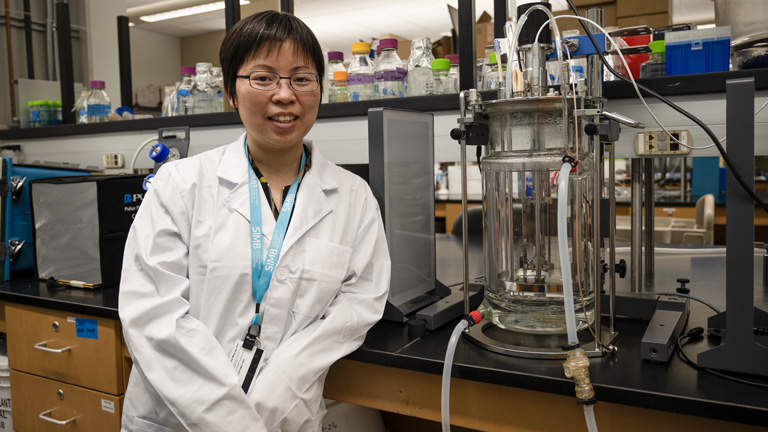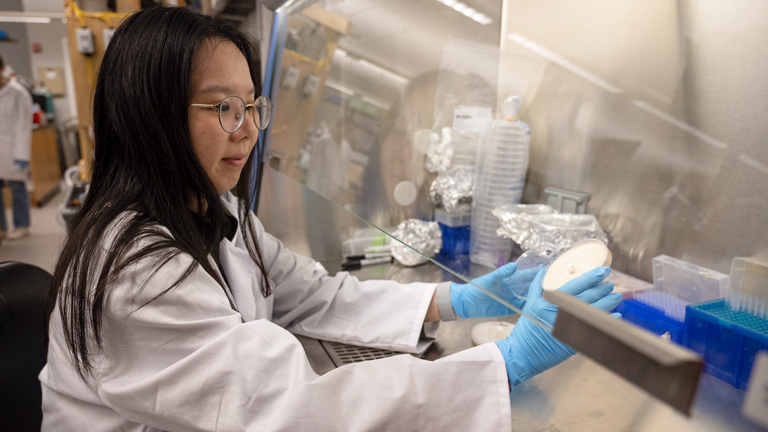June 30, 2025
Mizzou Engineering Professor Susie Dai is pioneering a scalable solution to clean up harmful PFAS without rare or expensive chemicals.

Every day, Mizzou Engineers explore unlimited possibilities and make discoveries that create meaningful change and improve lives across the world. One researcher is drawing inspiration from nature to develop a scalable way to remove harmful industrial pollutants from water.
Per- and polyfluoroalkyls (PFAS) are used in the manufacture of thousands of products, including non-stick cookware and water-proof clothing. They’re called “forever chemicals” because they take hundreds or even thousands of years to break down.
Susie Dai, a professor in the Department of Chemical and Biomedical Engineering, may have an environmentally friendly solution. She is now leading a three-year project to develop a high-capacity sorbent for PFAS removal and test the scalability and feasibility for drinking water and wastewater.
The project is based on Dai’s previous research into the natural capacity of plant biomass and white-rot fungus to remove and degrade PFAS. She observed how nature uses stable chemical structures to recycle materials and then reverse-engineered a new bio-sorbent material for in-situ remediation.

The result is a scaffold of natural fibers called RAPIMER. RAPIMER is made of lignin, an agricultural waste product. Cultivated within the scaffold is Irpex lacteus, a fungus that can degrade pollutantson its own but does it better in the presence of lignin.Together, the materials act like a sponge, soaking up PFAS and other pollutants and breaking them down.
Unlike other materials used to absorb pollutants, RAPIMER has an extremely high capacity to trap PFAS and other harmful chemicals and detoxify them with assistance from the fungus.
“Previous environmental remediation studies gave little thought to the spent media,” Dai said. “If pollutant-laden sorbents end up in a landfill, the contaminants simply return to nature in a concentrated form.”
A marriage of science and engineering
Dai became interested in PFAS remediation as associate director for the Iowa State Hygienic Lab, where she monitored environmental contaminants.
“Chemicals like PFAS are a double-edged sword,” she said. “On one side, they enable our modern lives. On the other, they can have a significant negative impact on society. We don’t yet have the technologies — or even the awareness — necessary to resolve this dilemma.”
The project is funded by a gift from Love, Tito’s, the philanthropic heart of Tito’s Handmade Vodka.
“We’re excited to support Dai’s groundbreaking research that addresses the pressing environmental challenges posed by PFAS,” said Sarah Everett, PhD, director of global impact and research for Tito’s Handmade Vodka. “This project represents a big step toward a scalable solution to PFAS remediation, and we’re grateful to play a role in helping to eventually improve water quality in communities around the world.”
Dai teaches at Mizzou Engineering, but her lab is in the Bond Life Sciences Center. She sees her current project as the perfect marriage of the two.
“Mizzou Engineering and Bond Life Sciences Center are the natural places for me to continue this line of work,” she said.
At Mizzou Engineering, we’re creating a better world. Explore our research.